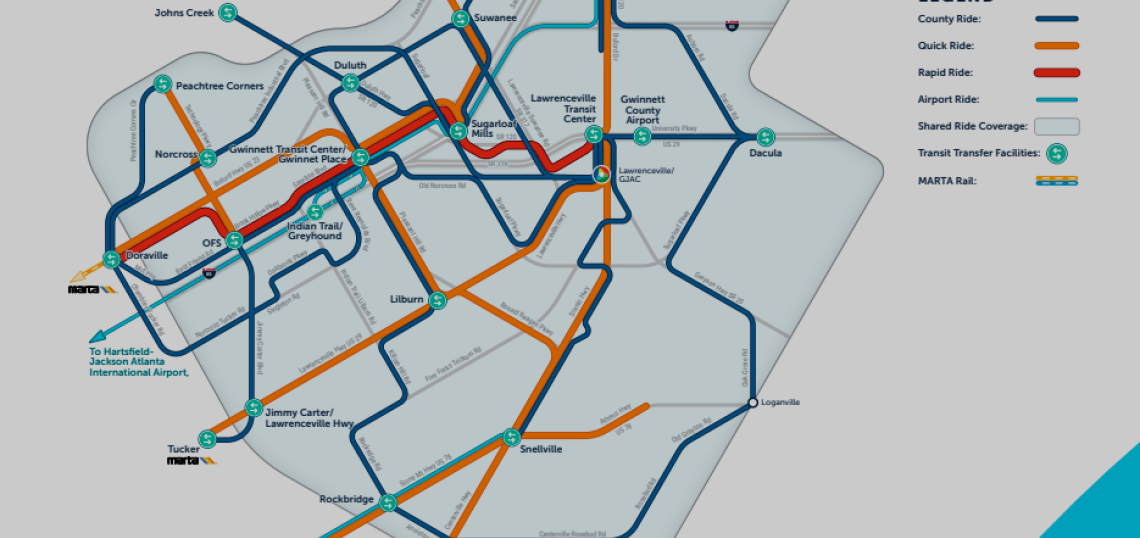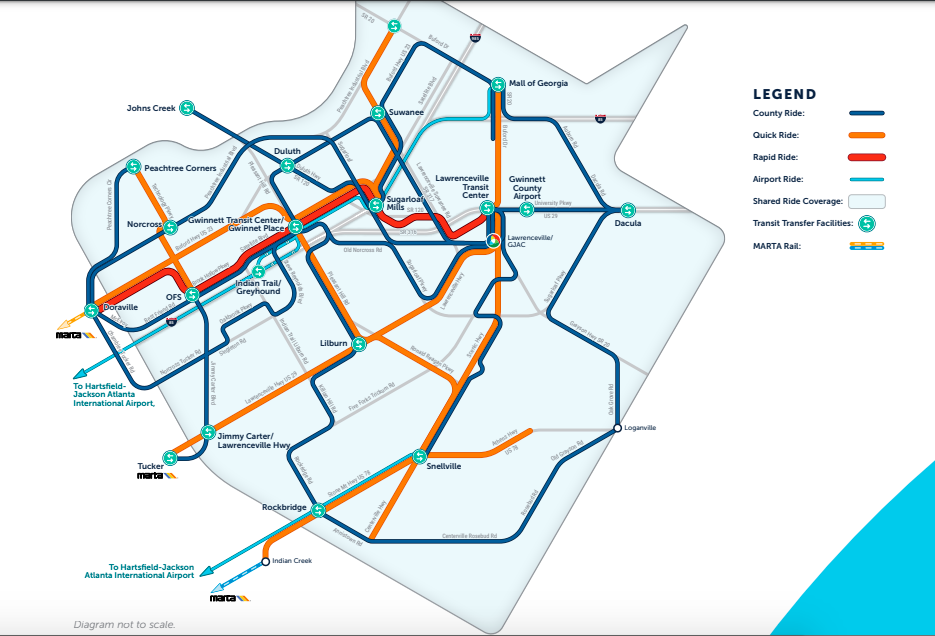Alternate transportation supporters of metro Atlanta suffered a two-pronged setback on Election Tuesday that echoed similar transit rejections of years and decades past.
Measures that would have introduced new tax-funded bus and shuttle options in both Cobb and Gwinnett counties were rejected by voters in Georgia’s quickly growing second and third-most populated counties, respectively.
The stiff-arm from voters was strongest in Cobb County, where a proposed 1 percent sales tax increase to beef up rapid bus and shuttle transportation over the next three decades suffered a 62.3 percent to 37.6 percent defeat.
Georgia Secretary of State Office data show nearly 240,000 voters in Cobb rejected the Mobility Special Purpose Local Option Sales Tax, or MSPLOST.
Cobb transportation officials had estimated the sales tax bump would have generated more than $10 billion over 30 years to expand high-capacity bus transit and operations, creating an estimated 100 miles worth of new lines between key destinations such as The Battery Atlanta, Kennesaw State University, and Six Flags Over Georgia, among other activity hubs.
In Gwinnett, it was a much closer—but still unsuccessful—transportation vote.
Roughly 53 percent of Gwinnett voters said “no” to another 1 percent sales tax mechanism—a Transportation Special Purpose Local Option Sales Tax, or TSPLOST—that could have created an estimated $17 billion in transit funding over 30 years.
The Gwinnett County Board of Commissioners in June voted 4-1 in favor of placing the transit referendum on the Nov. 5 General Election ballot. According to county leadership, the estimated $17 billion culled from consumer spending in Gwinnett would have funded up to 75 transit projects around the county, with an emphasis on expanding bus and microtransit options. But it would not have included MARTA expansion or heavy rail in any capacity.
Highlights of the plan called for: expanded microtransit across the county by 2033; express bus routes from Snellville in southeast Gwinnett and Mall of Georgia in the far north to Atlanta’s airport; a BRT line between Doraville’s MARTA station and Lawrenceville, the county seat, and high-frequency buses elsewhere; plus additional, modernized transfer facilities throughout Gwinnett.
Like Cobb, the rejection continues Gwinnett’s track record with tax-funded, transit-expansion proposals.
Four rejections of proposed MARTA expansions in Gwinnett date back to 1971 and 1990, in addition to two more recent failed efforts, in both 2019 and 2020. The latter, a $12 billion plan, was rejected by a razor-thin margin.
Transit supporters had hoped Gwinnett’s status as a vastly different place these days—with three times the population as the early 1990s and a shift in politics and identity from suburban conservative to more progressive and globally diverse—would push the latest transit efforts over the finish line, but such was not the case.
Which begs the question: Now what?
...
Follow us on social media:
Twitter / Facebook/and now: Instagram
• Introducing 'ATL Trains': A revolutionary approach to Atlanta transit? (Urbanize Atlanta)







